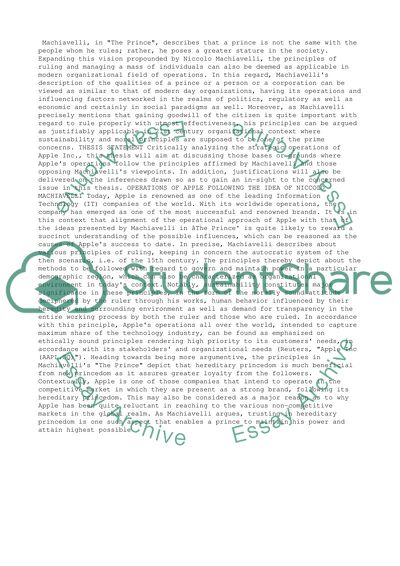Cite this document
(“OPERATIONS OF APPLE FOLLOWING THE IDEA OF NICCOLO MACHIAVELLI Essay”, n.d.)
Retrieved from https://studentshare.org/business/1493445-you-can-make-a-topic-but-still-using-apple-inc
Retrieved from https://studentshare.org/business/1493445-you-can-make-a-topic-but-still-using-apple-inc
(OPERATIONS OF APPLE FOLLOWING THE IDEA OF NICCOLO MACHIAVELLI Essay)
https://studentshare.org/business/1493445-you-can-make-a-topic-but-still-using-apple-inc.
https://studentshare.org/business/1493445-you-can-make-a-topic-but-still-using-apple-inc.
“OPERATIONS OF APPLE FOLLOWING THE IDEA OF NICCOLO MACHIAVELLI Essay”, n.d. https://studentshare.org/business/1493445-you-can-make-a-topic-but-still-using-apple-inc.


